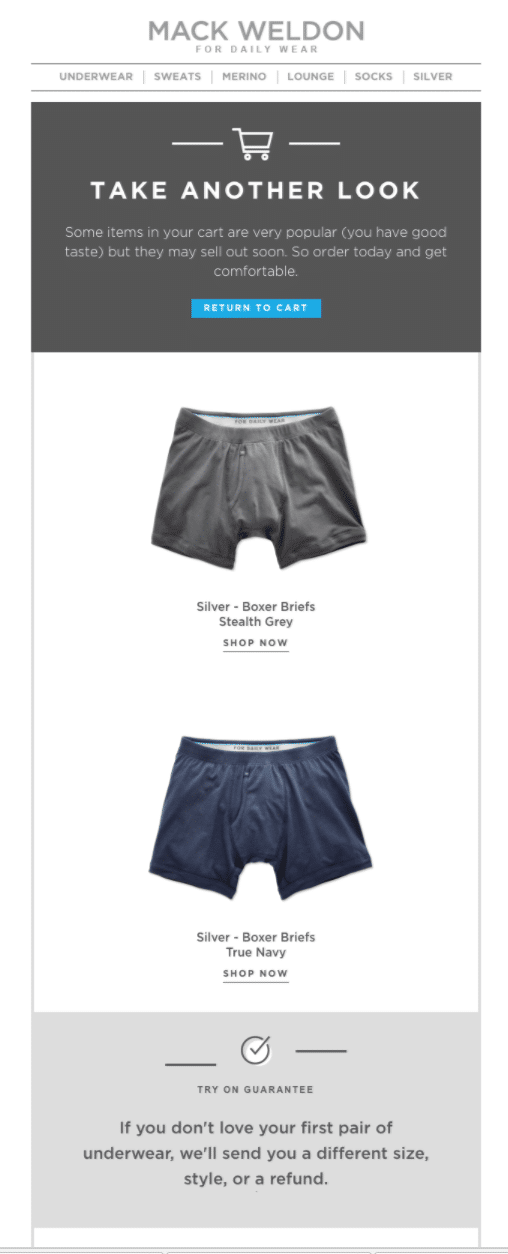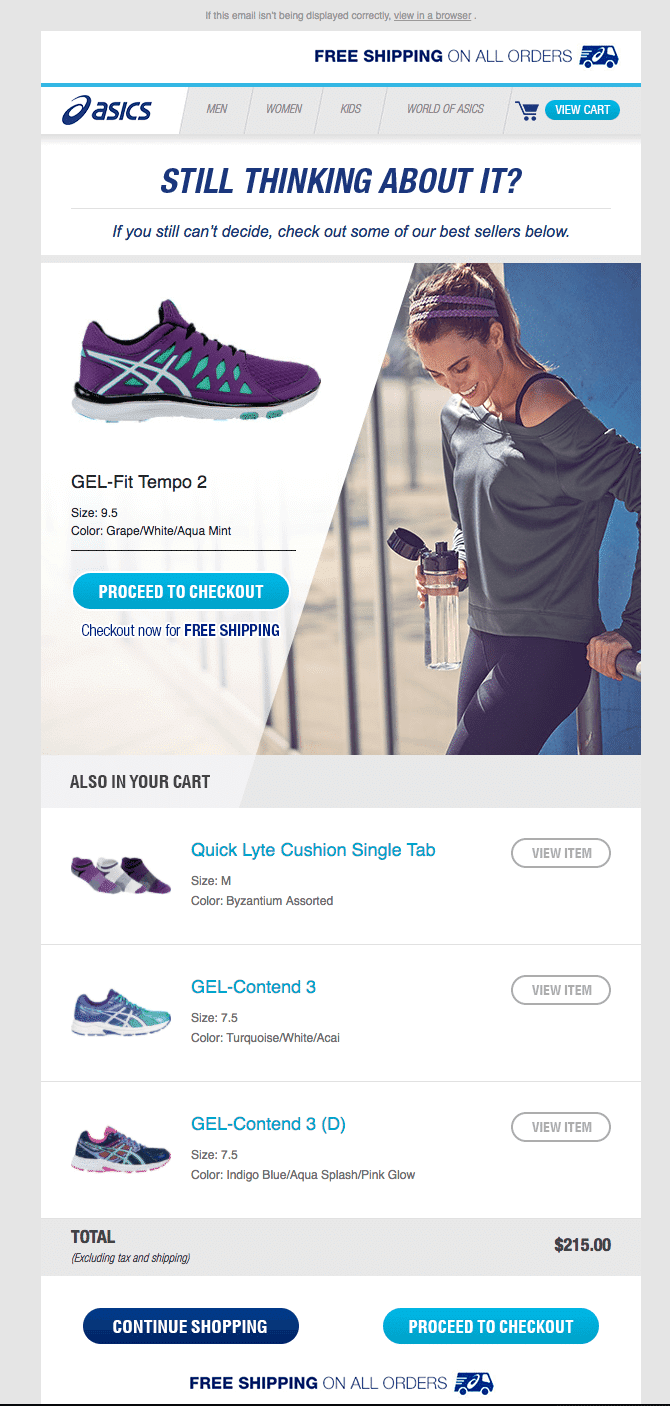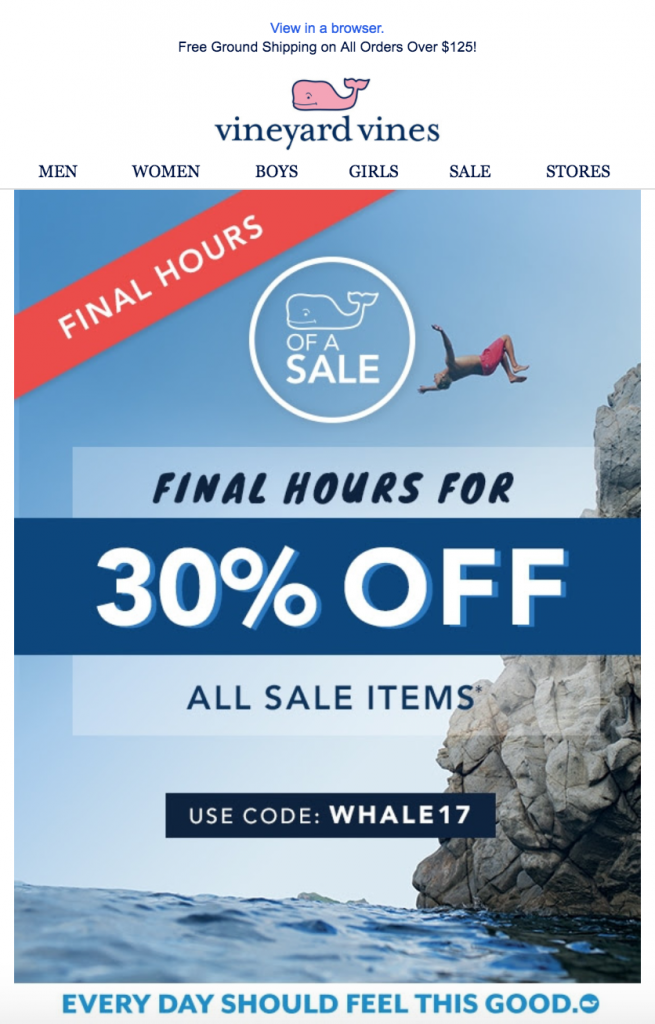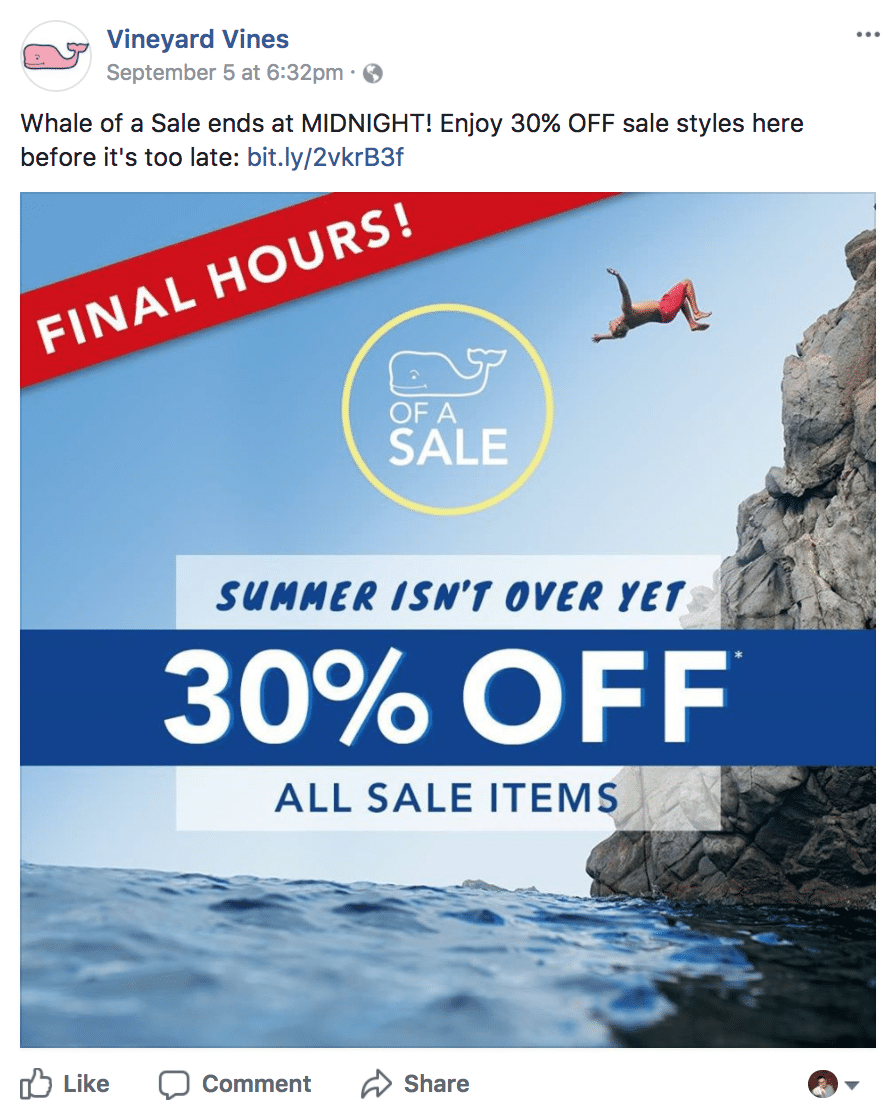Published October 2017, updated July 2019
We’ve all been the recipients of personalized marketing campaigns that may have fallen a bit flat. Even the biggest brands have sent emails with the wrong name or default text that went awry.
Personalization mistakes can quickly change someone’s opinion of a brand, so you have to be careful how you approach your target audience.
At the same time, consumers respond positively to personalization done well. According to Accenture, 75% of consumers are more likely to buy from a retailer that recognizes them by name, recommends options based on past purchases, or knows their purchase history.
Luckily, you can now do personalization far better than just ‘Hi [Your Name]’. You can dynamically segment your messages based on what users are doing on your company’s website right now, triggering marketing campaigns that offer personalized messages based on their real-time activity.
This type of personalization can impress, entice, and, of course, drive higher conversion rates. It’s personalization done right. Here’s how you can accomplish it for your brand.
Gain a deeper understanding of your customer
Personalization is only as good as the data you have about your buyers. Unfortunately, today’s buyers may have as many as six separate IDs in your systems, including:
- Multiple browsers, like Chrome, Safari, and Internet Explorer
- Mobile devices, like a laptop, desktop, cellphone, or tablet
- Multiple emails, customer identities, or phone numbers
With an advanced CRM, you can identify every customer’s actions across multiple browsers (on a mobile device or desktop) and on multiple platforms (email, web, mobile, ads, and more). By unifying all of that complex data into one single and accurate customer ID, you can better understand exactly who your potential buyers are, and what they’re interested in.
With that data in hand, you can then do a more specific segmentation of your customers according to their behaviors across platforms and channels. It’s not just about simple demographic data like age and location — now you know what they’ve clicked on, what products they’ve viewed, and much more.
Then with that specific information, you can send out far more personalized messages to your audience like the one below. In this example, Mack Weldon sends out recommendations based on what’s already in a user’s cart.

Leverage real-time marketing automation
Many marketers think they’ve already got a handle on marketing automation. In actuality, today’s technology can do a lot more than just trigger an automated welcome email when someone fills out a form. By using that same data around customer behavior on your site, you can use marketing automation to trigger emails based on specific actions taken by buyers.
For example, if a customer views women’s shoes multiple times, you can automatically send them an email with a coupon for that specific line of shoes. Or, if a customer abandons a cart, you can drive conversions by triggering a cart abandonment email to drive urgency.

This email from Asics was automated to arrive in the customer’s inbox exactly one hour after the item was abandoned in the cart, dynamically adding in the exact product they left behind along with an offer for free shipping. These types of triggers don’t require anything from the marketer to accomplish — they all happen in real-time as customers take actions across your site. With real-time marketing automation, you can make the message not just personal, but timely as well.
Use true omnichannel personalization
Emails are not the only way to achieve personalization and automation. In fact, these tools become even more powerful when you execute campaigns across multiple channels.
With omnichannel personalization, you can actually use that same data and same marketing automation to push out ads across channels — on Facebook, Google, YouTube, Instagram and more.


Instead of a win-back campaign only through email, Vineyard Vines used a coordinated effort to win back a customer through a sale via multiple channels, increasing the rate of success. Some customers may ignore your email but respond positively to web push or targeted ads. This type of detailed and specific personalization will help e-commerce brands stand out from the crowd.
Anticipate the buyer’s position in the sales funnel
Marketers know all about meeting buyers where they are. It’s a good practice to influence your efforts, but we often limit our thinking to coincide with the tactics we’re already using.
Sure, we think about how our product could help a person, or where they are as far as their location or financial status. However, what about their position in the sales funnel?
People have different interactions with companies, and therefore the next step for each individual may be unique. For example, people just viewing content may need to be nudged toward a sale with lead-generation techniques.
Source: Really Good Emails
The same could be said of leads, who may need things like customer support access to get questions answered before they’re ready to become customers. Customers could need the right platform to become promoters with reviews, and so on. As we can see, there are many opportunities for personalized email content at each level.
You don’t want to ask for product reviews from people who haven’t bought anything, nor do you want to explain to a person who is ready to make a purchase why they really need your product. Personalization is about giving people the relevant messages they need based on where they are.
Anticipate the pain points of customers
A great product is designed to do one thing above all else–solve a problem the customer faces. Personalized email shouldn’t just send people offers for products you want them to buy. It should focus on providing customers with products and resources you know can help them.
The result is a win for both sides. Customers are more likely to buy, and the company is more likely to have a higher click-through rate on their personalized content. So, if you’re looking to solve customers’ problems, identify those problems and craft your email around how your product—or services or resources or customer support—can solve them.
Source: Really Good Emails
Keeping a weight loss goal into the new year is difficult, so much so it’s become a running joke to make weight loss a new year’s resolution.
This email specifically targets the pain point of missing out on that delicious taste of the foods you love while trying to cut back on carbs. In doing so, it immediately establishes a connection with subscribers who’ve faced a similar problem.
Personalized email content isn’t just about filling in the customer’s name or information. It’s about relating to their struggles and helping them reach their goals. What’s more personal than an individual’s deepest desires or their hardest obstacle to overcome?
If your email content can tap into that, you’ll have mastered personalization and will enjoy the engagement that comes after.
Wrap up
Rather than worrying about making an awkward mistake, your marketing can be hyper-personalized to exactly what your buyer is looking for. Even better, they’ll see your message across multiple channels, always getting a consistent impression of your brand. With the right personalization combined with real-time automation across channels, you can truly start to personalize your marketing.
Looking to get a little more inventive with personalized email content? Learn tips on how to incorporate the customer’s journey into your content creation and distribution.







